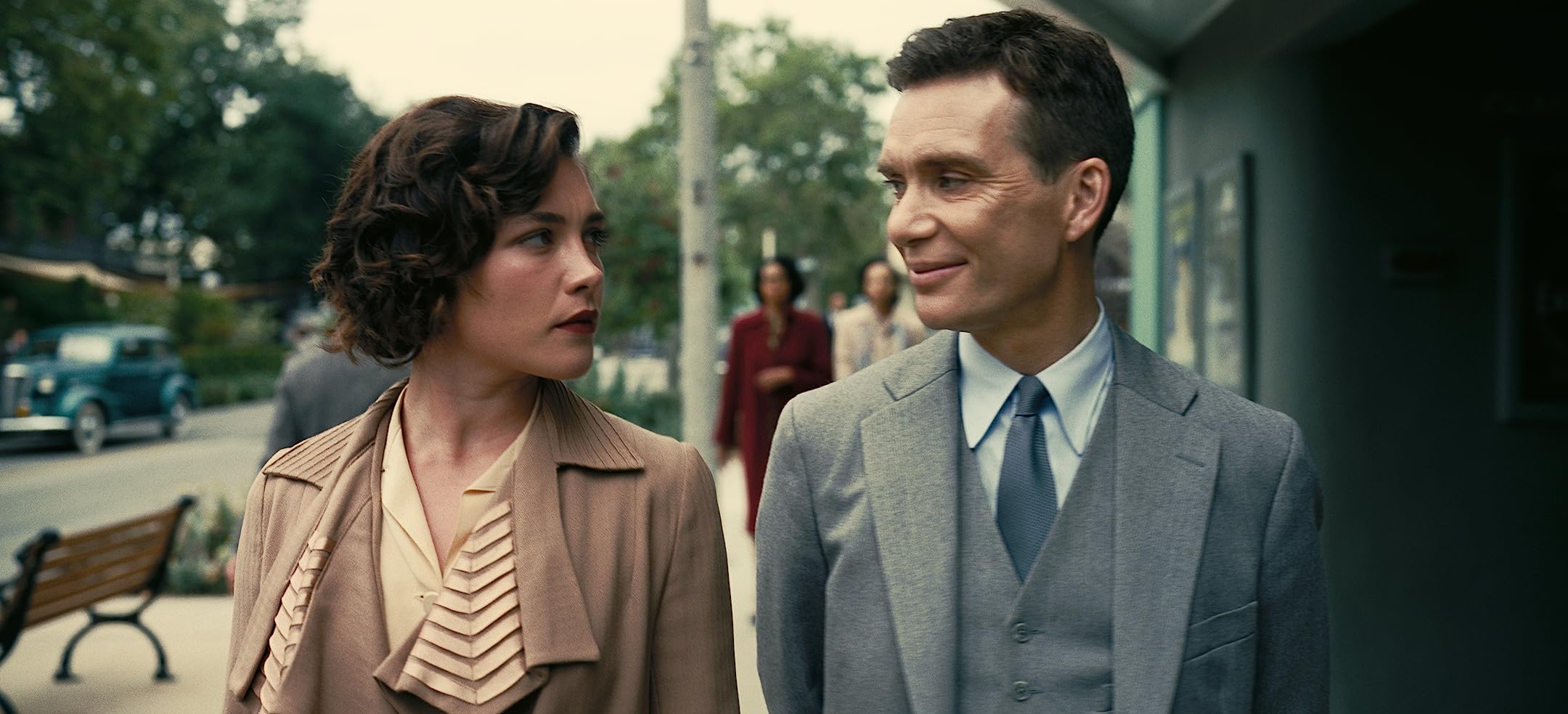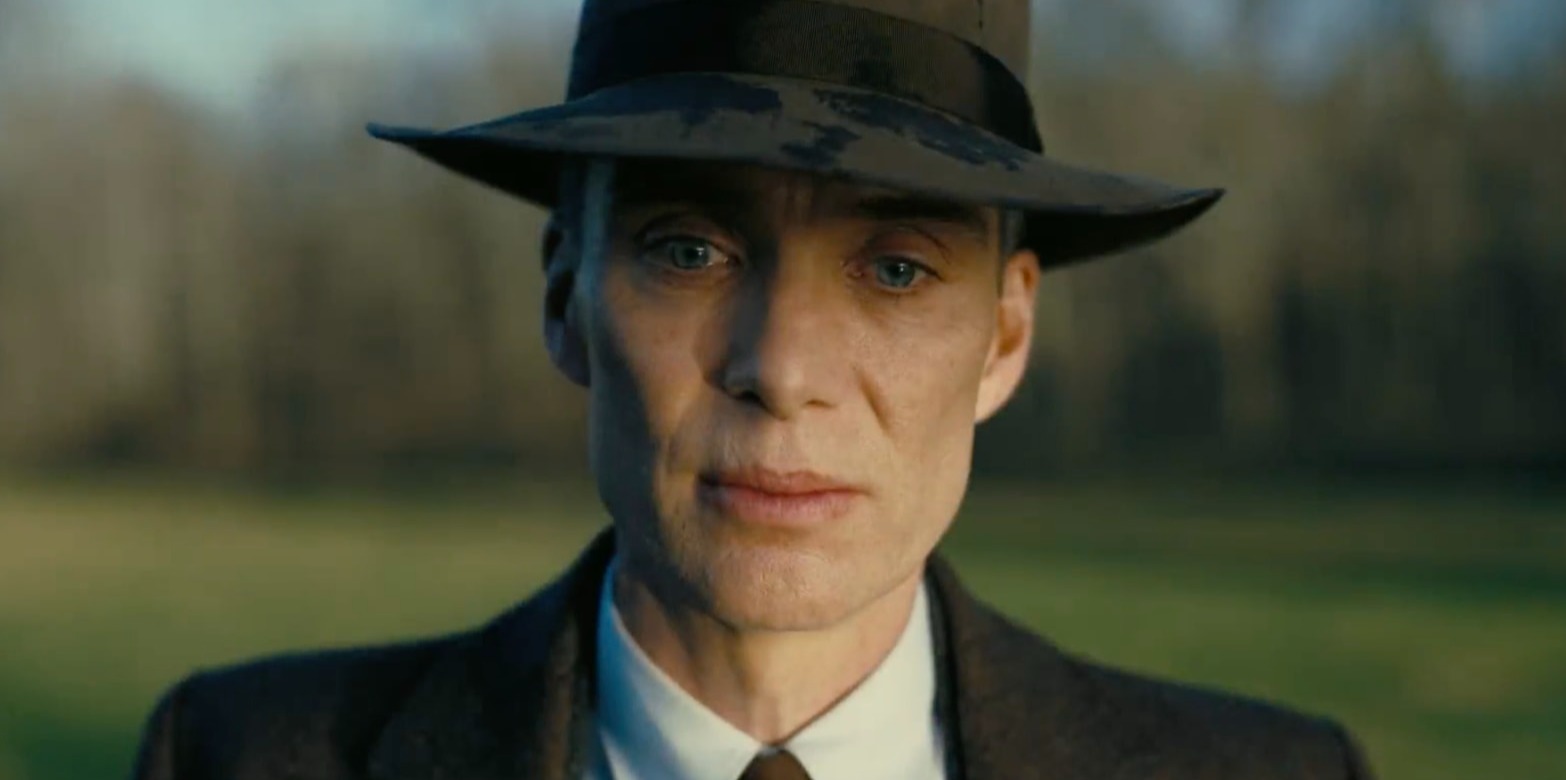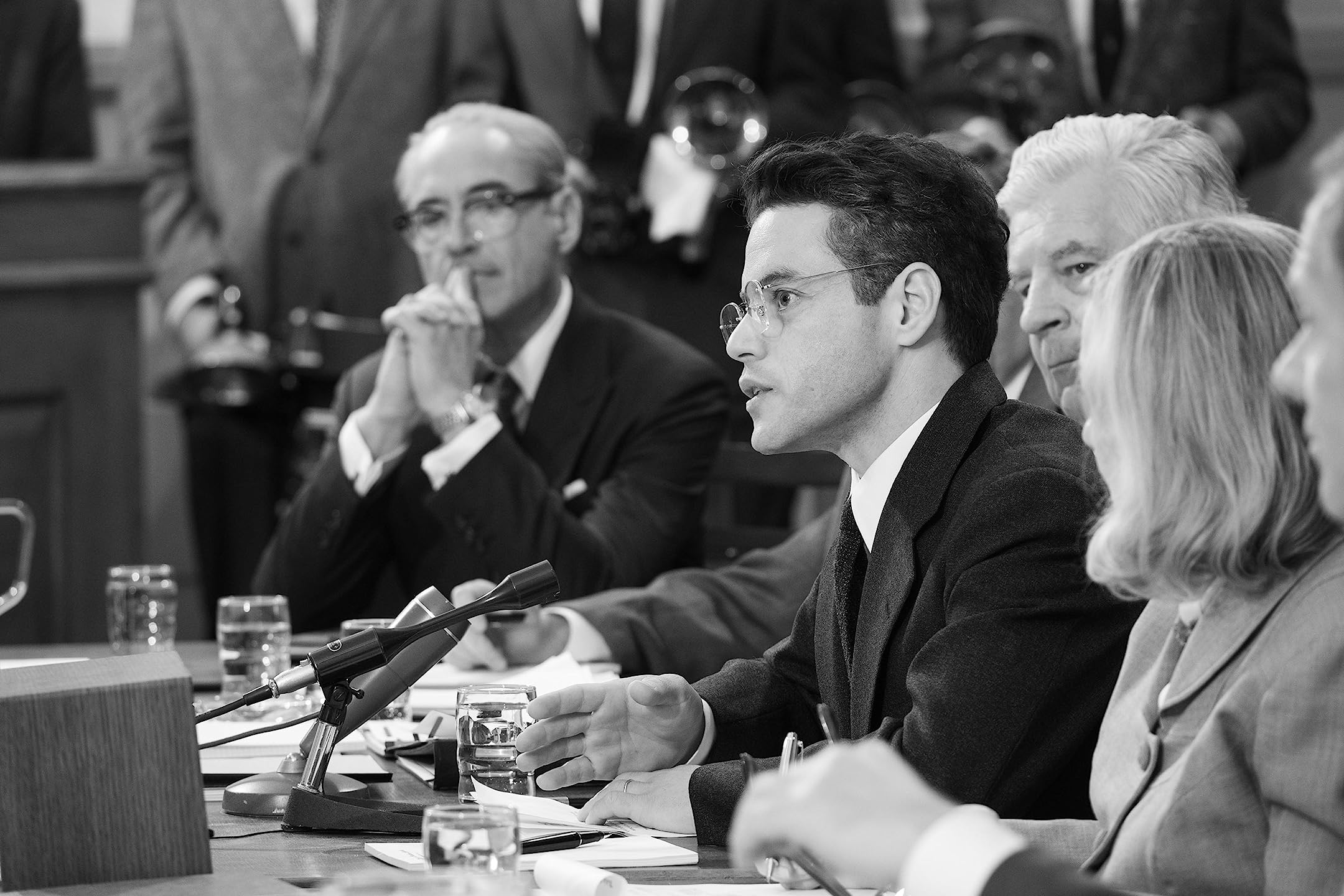Nolan's Magnum Opus-heimer





Film
As one of the most inventive storytellers in film, Christopher Nolan has used just about every trick in the book to tell a story in a uniquely novel way. He's told a story backwards with Memento, employed grand plot twists with The Prestige, both of which are early entries in his filmography. Not to mention he's created one of the best superhero trilogies with his Batman films, along with probably the greatest superhero movie to date in The Dark Knight. Nolan's even told stories with multiple timelines that could be difficult to follow, but he makes it so digestible, in films like Dunkirk, Inception and Interstellar. Not to mention, he's even made a movie that makes no goddamn sense, looking at you Tenet, just to stay humble. But all of this has brought us to the year of our lord 2023, where Nolan decided to bequeath unto the world, Oppenheimer.
The densest, most dialogue-heavy, and intriguing film of Nolan's career, Oppenheimer uses some of the same timeline-twisting approaches he's been known for while staying true to its own ethos. Led by a stellar Cillian Murphy playing J. Robert Oppenheimer, this film has cemented itself (in my mind) as Nolan's masterpiece.
Oppenheimer focuses on the trials and tribulations of J. Robert Oppenheimer, starting in his early days studying physics in Cambridge. We are presented immediately with the idea that Oppenheimer is not only a complicated man but a paradoxical one. Much like the splitting of an atom, a process called fission generates immense power, Oppenheimer's dueling ideals rip his mind apart throughout the film. Thus we are witnesses to the power, influence, and control or lack thereof resulting from this personal fission. Oppenheimer has an intense drive to push his mind to the brink of madness, needing to learn from the brightest minds to achieve his educational aspirations. However, these bright minds are overseas in England and Germany, where Oppenheimer grapples with homesickness and anxiety, presenting the first conflict between his desires and their fallout. Subjected to the demand and ridicule of Professor Patrick Blackett (James D'Arcy), Oppenheimer poisons an apple on his desk, showing a sinister power within himself. Waking up full of regret Oppenheimer runs to Blackett's classroom where he sees Nobel Prize-winning physicist Niels Bohr (Kenneth Branagh) who almost eats the apple, before Oppenheimer stops him, claiming there was a wormhole. This is an additional element added to the paradoxical structure of Oppenheimer's character. He possesses immense power through his intellect, and a desire to build upon it, yet he is reckless and sometimes even dangerous through using it.
Later on, Oppenheimer attempts to bring quantum physics to the United States where he begins teaching at Berkeley in the California Institute of Technology. There he has a session with a pupil where he asks how can light be made up of both waves and particles. A paradox. A direct parallel to how Oppenheimer can be both powerful, and powerless to his contrivances. He has to have a balance between his leftist ideals, often bumping into members of the Communist party such as Jean Tatlock (Florence Pugh) whom he strikes up a romantic relationship, and not forsaking his educational career. Such intricate coloring between the lines of the character is not fully possible without outstanding attention to detail. Nolan's script, while wordy at times, supplies the greatest shading to our picture of Oppenheimer we could possibly want. It is meticulously crafted, full of gripping dialogue that contains little to no fat.
These paradoxical characteristics of Oppenheimer feed into the climax of the film, his time at Los Alamos. Believing that the United States needs to create an atomic bomb to end the war, but not wanting to use it puts Oppenheimer at odds with those in higher positions. This idea plays out more in the third act of the film, but the meat of Oppenheimer's drive to create the bomb with his team of scientists takes up the second act. Nolan's penchant against using CGI turns what could be a great part of the film, into an extraordinary cinematic experience.
Combining practical effects, impeccable sound mixing, and an all-timer score from Ludwig Göransson elevates the tension building in Los Alamos to movie nirvana. From the construction of the town to meetings between scientists such as Edward Teller (Benny Safdie), and Isidor Rabi (David Krumholtz) among others, to the ultimate moment of the trinity test, Nolan's direction absolutely shines. There's no point in this film where he is not in absolute control. The vision, camera work from Hoyte van Hoytema, and amalgamation of every little piece come together in a true moment of shock and awe. When the timer for the trinity test hits 0 and the sound cuts out, leaving nothing but Oppenheimer's breath and a bright light. That's when you know you're watching something magnificent. It very well might be the defining moment of a movie for me this year, I really couldn't even comprehend what I was watching. My brain was fried.
Everything about Oppenheimer excels because of the work from everyone top to bottom. There are so many big names in this film, there's not enough time to give everyone a lot of screen share. But everyone and I mean everyone, makes the most out of their time. Matt Damon as Leslie Groves has one of the more reoccurring roles in the film and delivers an outstanding supporting performance. Safdie, Krumholtz, Branagh, and Pugh all deliver powerful punches packaged in tiny fragments of time. But in all of the supporting glory, Emily Blunt's Kitty Oppenheimer stands alone. Her emotional range in the film knows no bounds, thrusting you into the marital drama between Kitty and Robert. In the third act, Oppenheimer is being interrogated by Roger Robb (Jason Clarke) who is questioning his contact with known Communist party members. It's all a ploy, set up by Lewis Strauss (Robert Downey Jr.) to reduce Oppenheimer's political influence, which Kitty is well aware of when she walks in to be questioned. What unfurls is an outstanding performance from Blunt that neatly puts a bow on not only her character's story but her performance as a whole. Blunt has long been a great actress, with a fantastic resume to show, but this is the role that she has set herself apart with. It is astounding.
Not to mention Murphy in the lead is sensational. A long-time associate with Nolan, Murphy has been in countless films of his throughout the years but mostly in a supporting role. But rest assured, Murphy is unrelenting in his performance. During the pivotal scene where Oppenheimer is addressing an audience at Los Alamos, Murphy's facial expressions and eye acting are off the charts. It helps when Nolan's direction is top-tier, but the marriage of the two on screen is jaw-dropping. If there was ever any question on Murphy's leading capabilities (seems weird that there would be) let them be put to rest. Because this is as good as it gets.
Now Downey Jr. also has a phenomenal role that's shown in that unique Nolan way. The film is split into two sections, one in color that is titled "Fission" which is from the perspective of Oppenheimer. Whereas, another section intertwines with "Fission" and is in black and white. "Fusion" titles this part and it shows what objectively happened outside of Oppenheimer's view. Most of this is focused on the congressional hearing of Strauss, who is attempting to be confirmed as the Secretary of Commerce. Questions about his time as Chairmen of the Atomic Energy Commission and his involvement with Oppenheimer, including his involvement with Communist party members. First being introduced to the "Fusion" timeline can be confusing, but as more details reveal themselves throughout both "Fusion" and "Fission" it becomes an incredible, dramatic story. The two timelines, another parallel to the paradoxical Oppenheimer, balance who Oppenheimer was as the father of the atomic bomb, but also as a victim of political machinations. Once accomplishing one of the greatest scientific and military achievements in history, Oppenheimer was a staunch opposer to expanding nuclear weaponry, including the H-bomb program. This put him at odds with some of his scientists such as Teller, but also President Truman (Gary Oldman).
It is incredibly difficult to watch Oppenheimer and not feel a sense of existential dread. From the scientists at Los Alamos knowing there is a chance that detonating an atomic bomb could cause a chain reaction resulting in burning the entire atmosphere to them still doing it, you have to wonder about the dangerous ambitions of mankind. Oppenheimer being this incredibly powerful man who in the end is completely powerless in controlling what he's unleashed comes to a precipice of despair at the end of the film. A simple conversation with Albert Einstein (Tom Conti) where Oppenheimer mentions he believes that the chance they destroyed the world may have happened. The creation of the atomic bomb and its subsequent usage led to the expansion of nuclear arsenals across able countries, a literal nightmare scenario for Oppenheimer.
In true Nolan fashion, the ending is as mind-blowing as the movie itself. With a hint of the realization that we might all be doomed. Who knows.
Froth
I'm going to do something a little different here. I'll talk about the beer I had for the film and all of that good stuff don't worry. But I'm also going to highlight a couple of other breweries outside of Seattle that might be intriguing options for those watching Oppenheimer closer to these areas. So let's jump right in!
The most obvious first candidate is the Manhattan Project Beer Company in Dallas Texas. Named after the project that brought Oppenheimer and the team of scientists to Los Alamos, this brewery has great naming themes for all their beer. Beers like Half Life (Hazy IPA), Double Half Life (Double Hazy IPA), Hoppenheimer (West Coast IPA), and Fallout (Hefeweizen) have names inspired by the creation of the atomic bomb. While the movie material takes a more somber tone instead of some of the jesting with these names, you can see the effect that Oppenheimer has had outside of the physics community throughout the world. A dramatic film like this usually warrants something with some bite or a darker beer for me. I'd probably opt for the Hoppenheimer which sounds quite delicious until that 7.4% ABV slaps you across the face. Or I'd go for a Plutonium-239, a coconut porter that I stray away from on the hotter days but this one sounds just lovely!
The second brewery I want to mention is Bathtub Row Brewing which is located in Los Alamos New Mexico! Paying homage to Oppenheimer the brewery also has a Hoppenheimer IPA, but what really caught my eye is the Eureka IPA. Brewed as a single-malt-and-single-hop (SMASH) IPA it has a simple profile that is likely to be right in my wheelhouse. The name of the Brewery comes from the road it's on, Bathtub Row, which back when the Manhattan Project was underway had some of the only houses with bathtubs. Pretty wild right? Well, the town was built so quickly that not every house had normal amenities. Therefore, you put all the bathtub houses together and call it Bathtub Row!
Now finally for my choice. I enjoyed a wonderful DIPA from Halcyon Brewing Co. called Very Serious Young Man DIPA. Early in the film, we see just how serious Oppenheimer is in the early stages of his educational career. His drive to learn, to continue to push the boundaries of quantum physics, and bring what he knows to the United States. It's electrifying to watch and this beer is on an equal level! Smelling like a citrusy-tangerine pour this DIPA is exceptionally light and way too crushable for 8.2% ABV. I loved the flavor it brought to the table and thoroughly enjoyed having a serious beer with a serious film.











